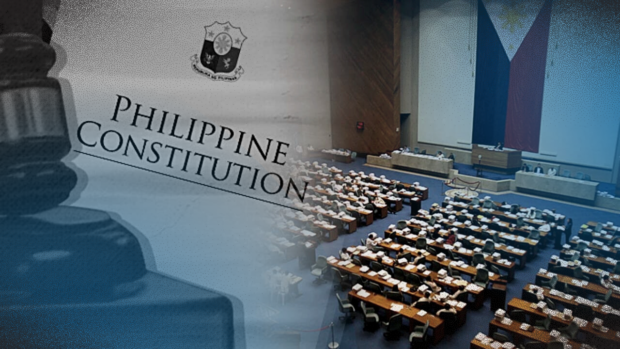MANILA, Philippines — The House Committee on Constitutional amendments on Monday approved the enabling bill of the Resolution of Both Houses (RBH) No. 6 that called for the formation of a hybrid constitutional convention (con-con) to amend the 1987 Constitution.
The bill specified the con-con’s composition and qualifications but did not provide the parameters of charter change (cha-cha), particularly limiting it to economic restrictions that lawmakers want lifted.
The committee, chaired by Cagayan de Oro Rep. Rufus Rodriguez, also disapproved the proposed inclusion of the prohibition against Con-con delegates related within the fourth degree of consanguinity to elected and appointed officials.
The enabling bill was approved with 17 in favor and two against — Assistant Minority Leader and Gabriela women’s party list Rep. Arlene Brosas and Senior Deputy Minority Leader and Northern Samar Rep. Paul Daza.
1973 Constitution
“The last time we had con-con was under the father of President Marcos Jr. There was also [an] RBH and accompanying bill. Eventually, the con-con produced the 1973 Constitution [that] further cemented the Marcos dictatorship. We should not forget this while we tackle cha-cha,” said Brosas.
She questioned the appointing authority of the House speaker and the Senate president to tap con-con members who would come from different sectors.
Rodriguez explained that the president, as the appointing power as previously discussed, was “precluded because there will be questions if the president will appoint [con-con delegates].”
Brosas also questioned the P10,000 per diem exclusive of transportation, lodging, and other expenses for the con-con delegates, which she said was “almost a month’s minimum wage of a worker.”
“We are firm in our belief that amending or revising the Constitution will not directly address the urgent economic concerns of Filipinos. What should be changed are laws that run counter to our nationalist aspirations and the democratic essence of the 1987 Constitution,” she said.
“We fear that we are repeating a dark side of our history by pushing through with this con-con accompanying bill,” she added.
Economic provisions
Daza questioned the absence in the bill of limiting the parameters in making charter changes, which meant that the convention could touch any part of the Constitution including political provisions.
Rodriguez said an amendment could be introduced in RBH 6 indicating the Con-con’s “focus” on the Constitution’s restrictive economic provisions.
But he said that this would be in the form of “suggestions” from the legislature as “ultimately, once the convention is convened, they (con-con) have constituent plenary powers.”
Daza said that it did not make sense that the bill would include the specifics on the delegates’ election, appointment, and eligibility but not a provision restricting changes.
253 districts
Under the unnumbered enabling bill for RBH 6 approved by the panel, the election for Con-con delegates from 253 districts nationwide would be held simultaneously with the barangay and Sangguniang Kabataan (SK) elections on Oct. 30 this year.
The Senate president and House speaker would appoint 50 more, accounting for 20 percent of district delegates.
Political parties are prohibited from nominating candidates while public officials who would seek seats would be deemed resigned upon filing of candidacy.
The con-con would convene on Nov. 30, with their term of office expiring on June 30, 2024.
The plebiscite for the ratification of charter amendments would be held “not earlier than 60 days nor later than 90 days after the submission of the convention report.”
